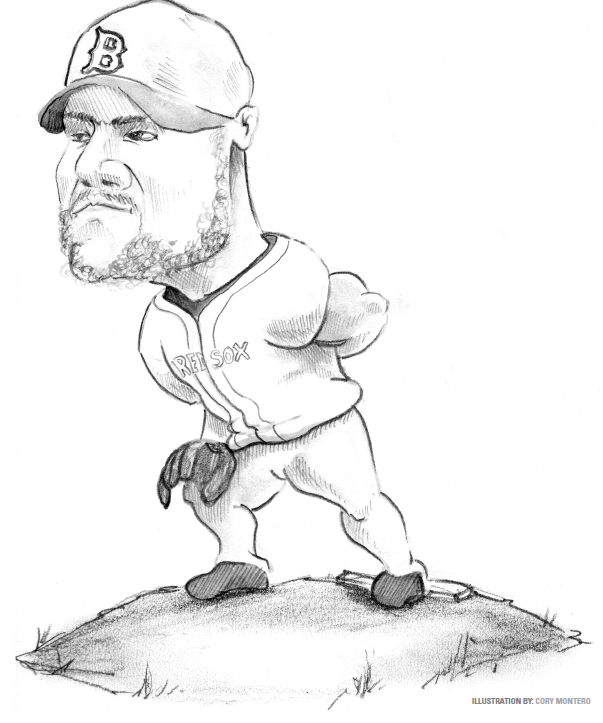Questioning professional baseball ethics

By: DENNIS W. PARKS
Staff Writer
St. Louis’ beloved baseball Cardinals sure did not perform to their best ability the 2013 World Series. In Game One alone, multiple fielding errors committed by infielders David Freese and Pete Kozma, along with a case of bad judgment by pitcher Adam Wainwright provided enough low-lights to give the opposing Boston Red Sox the win.
The Red Sox took advantages of those miscues and held the Cardinals to just one run on seven hits to deserve the win. These things are obvious to anyone who watched the game.
A factor that may not have been so obvious is the alleged use of a foreign substance being applied to the ball by Boston starting pitcher Jon Lester.
After game one was over, Tyler Melling, a minor league pitcher in the Cardinals organization, tweeted that he thought Lester was using a foreign substance on his pitches. The tweet was accompanied by a photo of a green glob inside of Lester’s black glove. This brought about speculation among baseball fans.
However, the Cardinals did not complain, the umpires did not suspect anything and MLB chose not to draw any conclusions. Lester and Red Sox manager John Farrell insist that the glob was merely resin.
The question however, is why was the resin in Lester’s glove? All baseball fans know there is an entire bag of resin on the back part of the pitching mound at all professional baseball games.
Whether Lester was cheating or not, he sure has broken my trust, and perhaps many others baseball fans, by not simply going to the resin bag as needed, just as other pitchers do. What makes Lester special?
No matter how hard they may have worked to get to the professional level, all athletes that are able to compete at the professional level have been given a gift. As recipients of that gift, there should be a zero tolerance for cheating.
There are simply too many kids in grade schools around the world who would give anything to have the opportunity to play for a professional sports team, to have adults abusing that opportunity.
Several major league baseball players were suspended during the 2013 season using performance enhancing drugs. Yet, many of them will be back next season after serving their suspensions. In civil matters, the penalty needs to fit the crime.
However, other than as entertainment venue, professional sports are all about statistics. How many home runs did this guy hit? How many batters did this guy strike out? Or whatever the case may be.
In the movie, “For the Love of the Game,” they keep statistics in baseball. For that reason alone, there is no room for cheating.
Whether it is by taking performance enhancing drugs or throwing an old-fashioned spit ball, it is an unfair advantage that is usually spelled out in black and white in the rulebook.
A mere asterisk in a record book is perfectly acceptable to indicate that a home run record is comparing a 162 game season with one of 154 games, but it does not give the full story when someone is cheating.
If someone is found cheating in professional sports, players and their records should be removed from the game forever.










